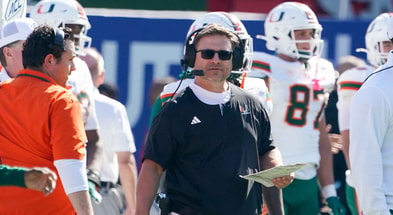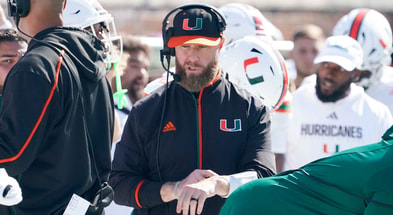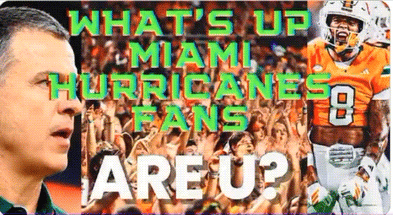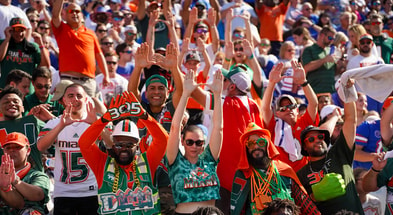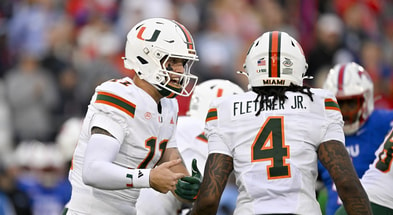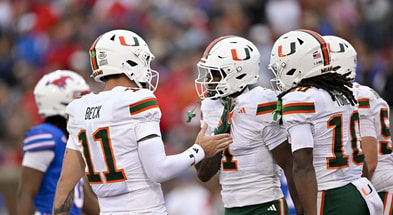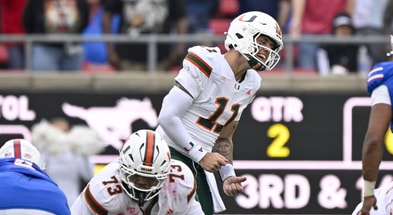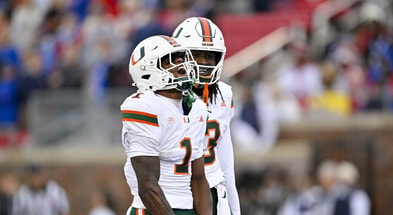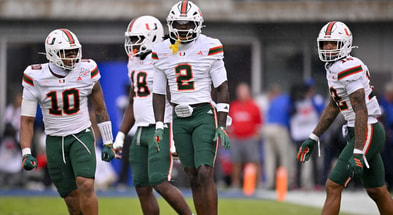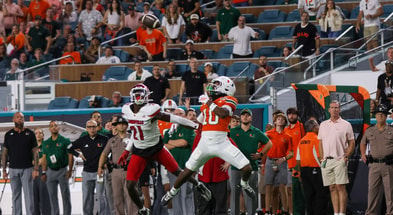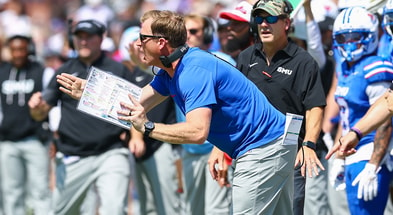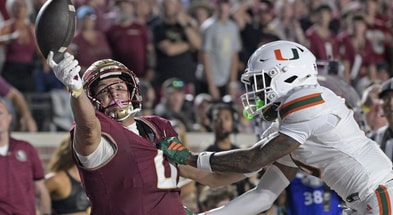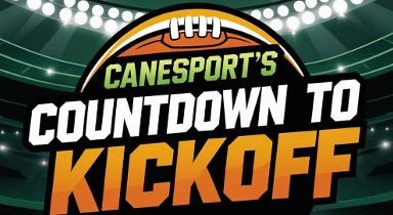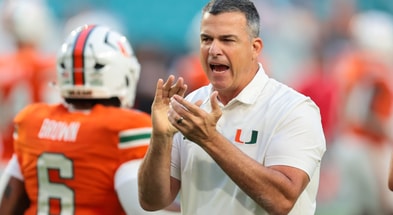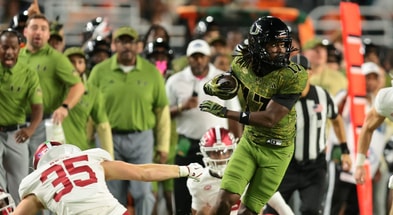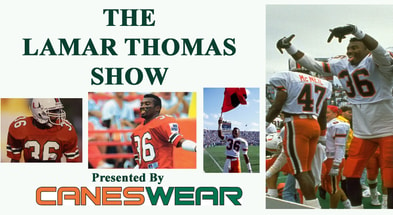Inside The Miami Hurricanes Legal Battle With Wisconsin Over DB Xavier Lucas
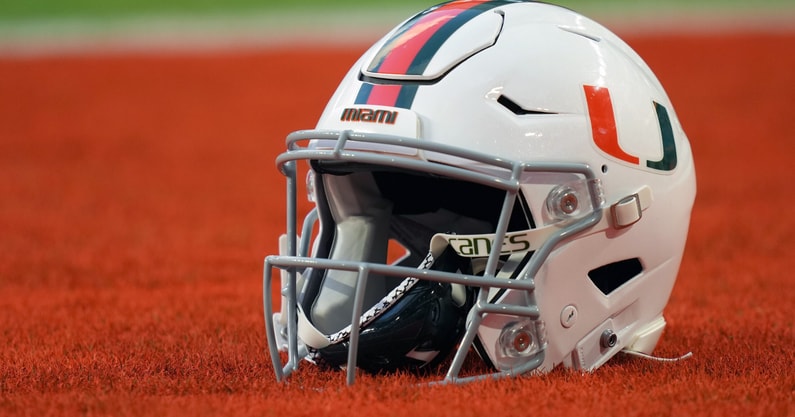
Key Points by CaneSport AI:
- Lawsuit Filed – The University of Wisconsin sued the University of Miami in June, alleging UM interfered with a binding revenue-sharing/NIL agreement involving CB Xavier Lucas.
- Lucas Not Named – The lawsuit targets only Miami, not Lucas, possibly to avoid the appearance that Wisconsin is preventing a student-athlete from leaving for personal reasons.
- UM’s Response – Miami’s attorney Eric Isicoff filed a motion to dismiss, arguing the case should be heard in Miami, not Wisconsin, and that there’s no evidence of interference or tampering.
- Lucas’ Statement – Under penalty of perjury, Lucas declared he had no contact with Miami personnel before deciding to leave Wisconsin, and that his decision to transfer was entirely personal and initiated by him.
- Alleged Meeting Disputed – Wisconsin claims Mario Cristobal and an alumnus met with Lucas in December 2024; both Lucas and Miami deny it, saying Wisconsin confused it with a recruiting meeting from a year earlier.
- No “Smoking Gun” Shown – Both Isicoff and Lucas’ personal attorney, Darren Heitner, tell CaneSport they have seen no evidence to support Wisconsin’s claims and describe the Badgers’ information as flawed.
- Legal Stakes – If Wisconsin wins, the likely outcome of this case alone is a civil monetary penalty, not NCAA sanctions, since this is not an NCAA proceeding. Wisconsin would have to prove economic damages.
- Jurisdiction Challenge – Miami argues it has no legal presence in Wisconsin (“not at home” there), making the state court an improper venue.
- Broader Implications – The case touches on unsettled questions about whether schools can enforce NIL/revenue-sharing agreements if a player leaves, and whether such agreements “bind” a student-athlete to a school.
- No Immediate Threat to Miami – Attorneys say Miami fans shouldn’t worry about eligibility or program penalties from this lawsuit; the burden of proof lies with Wisconsin.
Miami football fans are perhaps unaware that the season’s first matchup has already kicked off. It’s the Hurricanes playing on the road at Wisconsin, but if you’re keeping score it’s the beginning of the first quarter. And the game’s being played in a Wisconsin courtroom.
The University of Miami, for the uninitiated, had a lawsuit filed against it by the University of Wisconsin in June alleging that UM committed tortious interference in a binding revenue-sharing agreement with CB Xavier Lucas. Lawyer Eric Isicoff of Isicoff Ragatz, who has represented the University of Miami for 42 years including handling a lawsuit when UM left The Big East and other NCAA-related matters – as well as representing other large institutions – responded with a motion to dismiss on Friday.
CaneSport has reviewed the University of Miami’s memorandum to dismiss, along with Lucas’ declaration and other documentation. We also spoke at length today with both Isicoff and Lucas’ personal attorney, Darren Heitner.
The Big Picture
Let’s start with the memorandum. It points out how Lucas was denied in his request to enter the transfer portal, then withdrew and enrolled at Miami. Isicoff tells CaneSport that the University of Miami completed “a very thorough internal review and investigation,” finding no wrongdoing on the matter at hand. He also said that his law firm conducted its own review from the Miami side of things.
“I don’t know what Wisconsin saw or thought, but based on what I know there’s nothing we could find that would suggest in any way the University of Miami interfered, tampered, call it whatever you want,” Isicoff said.
Of note is that Lucas is not named in the lawsuit, only the University of Miami. It’s unclear why this is, but perhaps the Badgers don’t want to become the program known for preventing its student-athletes from leaving for personal reasons (which is what Lucas cited in his departure).
Regardless of the motivation for not naming Lucas in the lawsuit, the now-Miami DB did file a statement in support of Miami’s motion that states while he was in Wisconsin during the fall semester of 2024 he never had contact with “any person who purported to be acting on behalf of University of Miami or University of Miami’s athletic department or University of Miami’s football program” or “any representative of University of Miami or University of Miami’s athletic department or University of Miami’s football program.”
“When we filed our motion to dismiss it’s supported by statements under penalty of perjury – Xavier Lucas makes very clear his decision to leave Wisconsin was entirely personal,” Isicoff tells us. “There was no contact in Wisconsin or Miami with him prior to the decision or prior to when he ultimately after dis-enrolling reached out to the University of Miami and like any other student got into the enrollment process.”
Legal Angle
Isicoff’s motion to dismiss is based on the merits, and also the fact that if the case is going to go forward it would need to be filed in Miami.
“Despite the simplicity of the asserted claims, Plaintiffs would have this Court believe that the very fate of college football hangs in the balance unless this Court acts at this `watershed’ moment,” the motion to dismiss states. “The Court, it seems, is being asked not merely to resolve a dispute but to save the soul of college sports. Lost in the rhetoric and dramatic characterization of events, though, is the critically important, threshold question of whether University of Miami is even properly before this Court. Respectfully, it is not. Plaintiffs suggest several bases for personal jurisdiction, but none withstands scrutiny. First, and most obviously, University of Miami is not subject to general personal jurisdiction in Wisconsin because it is not “at home” here. Wisconsin is neither its principal place of business nor its state of incorporation—the only places that the Supreme Court has identified as having general jurisdiction over an organizational defendant.”
Isicoff further tells us that “We’ve filed a serious motion not to delay, not a placeholder. We truly believe this case if it was ever going to be brought at all, if it’s going to be brought it should be in Miami.”
The big question that remains for many, though, isn’t if the case is dismissed, moves forward or is re-filed in Miami. It’s what the heck does Wisconsin think it has that proves Miami did anything wrong here? Again, Lucas is not included in the lawsuit. So on the surface this is about a Wisconsin program trying to prove tortious interference (aka tampering to your generic fan) by Miami in persuading him to become a Hurricane. The other big question is, even if there’s a “smoking gun,” what would the penalties be for that?
We posed both those questions to Isicoff. He acknowledges that there has been no discovery yet, so he hasn’t seen what Wisconsin thinks it has.
No Apparent `Smoking Gun’
“They may have a smoking gun but I haven’t seen anything,” Isicoff said. “Until they show that to me our understanding from a fairly deep internal review is there’s nothing.”
Heitner, who dealt with trying to get his client put into the portal by Wisconsin as should have been required by NCAA bylaws, also says there is no smoking gun and that “I didn’t expect a lawsuit to be filed at all.”
“I have not seen anything to lead me to believe they have a smoking gun,” Heitner said. “In fact, to the alternative, it appears they have really bad information and/or have been extremely sloppy. They made reference to an in-person meeting [in 2024] – I suppose that’s what they believed to be their smoking gun, but they were off by a year, which is very significant.”
The above refers to the allegation by Wisconsin that Mario Cristobal and a distinguished alumni had a meeting with Lucas at a relative’s home in December, 2024.
“Based on everything I know that didn’t happen,” Isicoff says, a statement backed up by Heitner. “It appears they are confusing that meeting with one that occurred a year prior (when allowed by the rules as Lucas was a high school recruit at that time). … From everything we know, what they’ve heard and are presuming is simply not the case.”
Lucas also addresses the alleged meeting in his declaration: “I am unaware of any coach or alumnus of University of Miami visiting the home of any of my relatives in December 2024 and do not believe that such an event ever occurred.”
Also included: “Once I returned home [following the fall semester], I made the decision to enter the Transfer Portal and to transfer out of Wisconsin. I made that decision with input from family members and for personal reasons. I had no contact with anyone from or representing University of Miami regarding that decision and no representative of University of Miami influenced that decision in any way. Once I decided to attempt to transfer to University of Miami, I initiated contact with University of Miami. No one from University of Miami initiated contact with me.”
Top 10
- 1New
YouTube TV, ESPN dispute
Google blasts ABC
- 2
College Football Playoff
Teams that remain in the hunt
- 3Hot
BCS Formula
Predicts first CFP Top 25
- 4
CFP Top 25 predictions
Projecting first rankings
- 5Trending
Auburn Hot Board
Top candidates to replace Freeze
Get the Daily On3 Newsletter in your inbox every morning
By clicking "Subscribe to Newsletter", I agree to On3's Privacy Notice, Terms, and use of my personal information described therein.
Isicoff declined to give specifics on what the deep internal review on Miami’s side entailed, including if staff phone records were checked and other details that Wisconsin will likely try to pursue. But for Wisconsin to get to the point where it could subpoena phone records would be a long way down the road.
For his part, Heitner says his expectation is Isicoff will prevail in his initial dismissal attempt due to the case being in Wisconsin, but that it could wind up being re-filed in South Florida.
“At which point in time that court will have to determine if it survives dismissal on substantive grounds,” Heitner says.
Where Is The `Why?’
Fans may wonder why Wisconsin would risk filing a lawsuit when it sure seems there’s just nothing there, right? Isicoff and Heitner don’t have answers for that, and there’s some speculation on the outside that perhaps the Big Ten is pressuring Wisconsin to do something after they raised such a ruckus about it during the transfer portal window.
So even with the nothing appearing to be there … let’s take a look a the worst-case scenario if there is a smoking gun. In that case, if the Badgers were hypothetically to prevail, this would be a civil monetary penalty. Therefore, as Heitner puts it, “This is not an NCAA proceeding. In a civil lawsuit ultimately you’re looking at monetary damages, so Wisconsin would have to plead and prove what those economic damages are.”
The burden of proof is on Wisconsin, which has to provide evidence to substantiate its claim. And it’s worth noting that Lucas never received any money from the revenue sharing agreement he signed.
“I don’t think the (Miami) fan has anything to be worried about,” Heitner says.
Isicoff adds that Lucas “signed allegedly a two-year NIL deal with the University [of Wisconsin]. We’re not aware of their being an agreement signed with the collective … we don’t believe one was signed at all. The issue really I one of `Okay the student signs the [revenue sharing] agreement, is unhappy there and wants to leave.’ He asks to be put in the portal repeatedly, is told no. He gets a lawyer, puts the matter in his own hands and dis-enrolled. He could have gone anywhere. Wisconsin is upset with Miami because they are reaching the conclusion that because he ended up here we had something to do with it.”
Now, in a worst case scenario could the NCAA investigate on its own? Sure. But in terms of this case it’s about public perception and recouping money. The case on its own, per Heitner, won’t have bearing on Lucas’ eligibility, Miami’s coaches, the program, etc.
Why It Matters
How it plays out could have an effect on whether student-athletes are essentially “owned” by their schools once they sign a collective/revenue sharing agreement. But that aspect isn’t what this is purely about with Wisconsin alleging tortoius interference.
“This is a bad test case [for student-athletes being bound to their schools by revenue agreements],” Isicoff says.
There’s no definitive timeline for the motion to dismiss, but there should be a better idea on that in the next week or so.
“I don’t know how the case is going to unfold,” Isicoff said. “There are so many factors and variables. There’s been no discovery, no one has deposed Xavier Lucas yet. But I think we know a couple of things – this territory is relatively new. The house settlement having just occurred, the way being cleared for direct agreements with universities for students to be paid, not having to work through a collective.
“If a student signs an agreement with a university, what does that mean if they choose to leave? Does that agreement become null and void and they have to pay back money? No one knows for sure. Our point will be if there is going to be a test case for this new world order, this is a bad one because Miami has nothing to do with his departure.”
